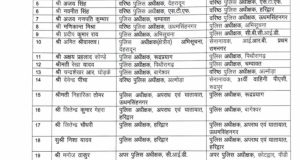Dr Sanjay Kr Varun
Swine flu also called pig influenza, swine influenza, hog flu and pig flu. Swine influenza virus (SIV) or S-OIV (swine-origin influenza virus) is any strain of the influenza family of viruses that is endemic in pigs. It infects the respiratory tract and results in nasal secretions, a barking like cough, decreased appetite and listless behavior. Swine Flu or the Influenza A (H1N1) flu, an highly contagious acute respiratory disease of the pigs, is caused by one of the numerous swine influenza A strains and is highly contagious. The transmission of the virus is from person-to-person and is similar to the manner in which seasonal influenza spreads. Swine flu is a viral infection. It is a present public health problem globally. In the present situation many people infected by swine flu. Occurrence of swine flu has been reported form every part of the globe like mid-western United States, Canada, Mexico, South America, Kenya, China, Taiwan, Japan, and several parts of Eastern Asia including India
India is in the grip of swine flu. Over 6,000 have been tested positive since the beginning of this year and as many as 226 people have lost their lives. According to the data from National Centre for Disease Control (NCDC), Rajasthan is the worst affected state with a whopping 2,263 cases. It is followed by Delhi which has registered 1,011 cases.(Times of India 05.02.19)
A suspected case of influenza A {H1N1) is defined as a person with acute febrile respiratory illness (fever> 38°C) with onset , within 7 days of close contact with a person who is a confirmed case of influenza A (H1N1 ) virus infection or within 7 days of travel to areas where there are one or more confirmed cases, or resides in a community where there are one or more confirmed influenza A (H1N1) .
symptoms present with fever, cough, sore throat, rhinorrhoea, headache, muscle pain, and malaise Gastrointestinal illness may also be present, such as diarrhoea and/or vomiting, especially in children, but without evidence of dehydration. Patients who present initially with uncomplicated influenza may progress to more severe disease. Progression can be rapid within 24 hours.Risk factors for severe disease are Infants and young children, in particular <2 years, Pregnant women, Persons of any age with chronic pulmonary disease Persons of any age with chronic cardiac disease Persons diabetes, Persons with chronic renal disease, chronic hepatic disease, haemoglobinopathies, or immunosuppression, whether due to primary immunosuppressive conditions, such as HIV infection, or secondary conditions, such as immunosuppressive medication or malignancy, Persons aged 65 years and older.
for prevention two types of vaccine available inactivated and Live attenuated vaccines. vaccine only becomes effective about 14 days after vaccination, Those infected shortly before (1-3 days) or shortly after immunization can still get the disease.
prevention include washing hands regularly with soap, getting plenty of sleep, exercising often, managing stress, drinking liquids, eating a balanced diet, refraining from touching surfaces that may have the virus, Do not get close to people who are sick. Be sure to stay away from crowds if there is a swine flu outbreak in your area. How to reduce the spread of infection: If a person is infected, it is important they follow these rules to prevent any further spread, Limit contact with other people, do not go to work or school, when coughing or sneezing cover the mouth with a tissue. If there is no tissue available, cover the mouth and nose, Put used tissues in a trash can, Wash the hands and face regularly, Keep all surfaces that are touched clean, Follow all doctors’ instructions.
 Dainik Nation News Portal
Dainik Nation News Portal




